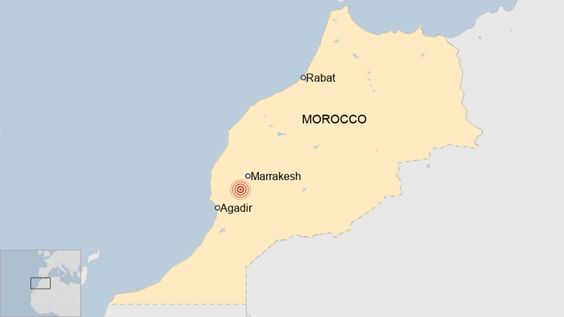Africa
Buildings are damaged and 296 people die in the Morocco earthquake

According to the country’s interior ministry, a powerful earthquake with a magnitude of 6.8 rocked central Morocco and killed at least 296 people.
According to the US Geological Survey, the epicentre occurred in the High Atlas Mountains, 71 kilometres (44 miles) south-west of Marrakesh, at a depth of 18.5 kilometres.
At 22:11 GMT, the earthquake occurred at 23:11 local time. A 4.9 aftershock occurred 19 minutes later.
The ministry reported fatalities in Marrakesh and numerous southern locales.
The statement read, “According to a provisional report, the earthquake killed 296 people in the provinces and municipalities of al-Haouz, Marrakesh, Ouarzazate, Azilal, Chichaoua, and Taroudant,” adding that 153 people were hurt and were taken to the hospital.
Unverified video footage posted on X (previously Twitter) depict destroyed structures, shaking other structures, and streets covered in debris. People can be seen walking amid dust clouds and some running away in fear.
According to a local, some structures in Marrakesh’s old centre have collapsed. Buildings can be seen collapsing in several clips on X, although the BBC hasn’t said where they were.
According to reports, locals have made the decision to remain outside of their homes in case the city is shaken by strong aftershocks.
In the old city, another man reported experiencing a “violent tremor” and witnessing “buildings moving.”
“Everyone was frightened and anxious. Parents were upset and the kids were crying, Abdelhak El Amrani told the AFP news agency.
According to him, phone and electricity lines were out for ten minutes.
In addition, AFP said that other city residents were rushed to hospitals and that one family was trapped in a house’s collapsed debris.
The earthquake’s shallow epicentre was in a remote region of the High Atlas Mountains, although vibrations were also reportedly felt in 350 km away Rabat, Casablanca, and Essaouira.
Simple structures in mountain settlements close to the epicentre might not have survived, and because they are far away, determining victims might take some time.
BBC
